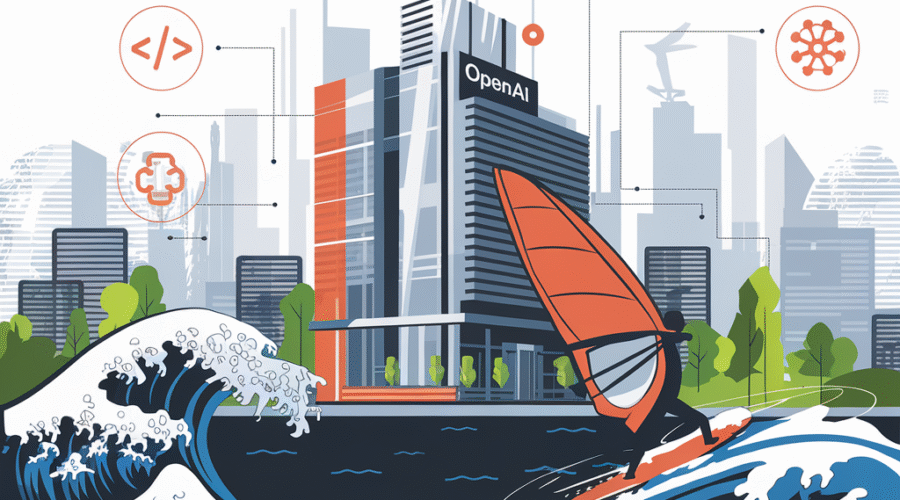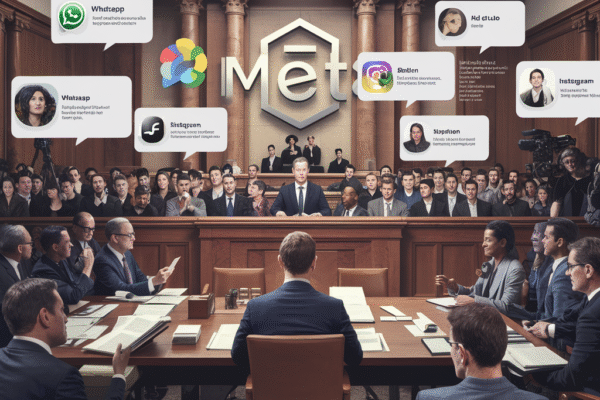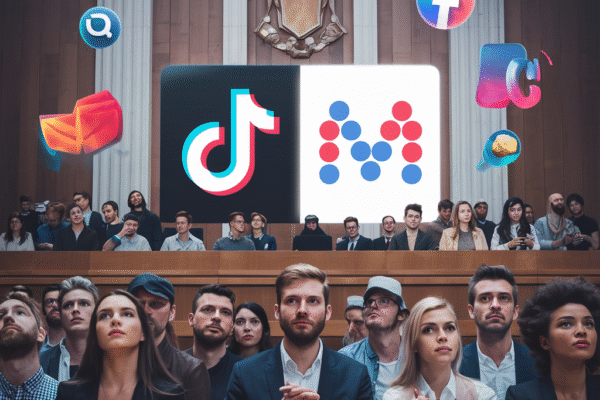In a bold move signaling its ambitions to dominate the AI-assisted development tools market, OpenAI is negotiating a $3 billion acquisition of Windsurf (formerly Codeium) after failed attempts to acquire Anysphere, creator of the popular Cursor IDE. This potential deal – OpenAI’s largest to date – comes amid intensifying competition with Microsoft’s GitHub Copilot and reflects strategic recalculations following OpenAI’s unsuccessful courtship of Cursor. The acquisition would position ChatGPT’s creator at the center of a $15 billion developer tools market growing at 28% CAGR, while raising complex questions about competitive dynamics given OpenAI’s prior investment in Cursor through its Startup Fund[2][5][6].
Strategic Rationale: Securing the AI Development Stack
Expanding Beyond Conversational AI
OpenAI’s push into developer tools marks a strategic evolution from its core language models. With 63% of developers now using AI coding assistants daily (per Stack Overflow’s 2025 survey), the Windsurf acquisition would give OpenAI direct access to 1.2 million active developers using Windsurf’s agentic IDE[6]. This aligns with CEO Sam Altman’s vision of creating vertically integrated AI solutions, building on recent infrastructure acquisitions like Rockset’s real-time analytics platform[3].
Countering Microsoft’s GitHub Dominance
The deal directly challenges Microsoft’s GitHub Copilot, which commands 38% market share with 5 million paid seats. Internal projections suggest Windsurf integration could help OpenAI capture 18% of the coding tools market within two years, leveraging ChatGPT’s existing enterprise relationships[3][6]. This creates complex dynamics with Microsoft, OpenAI’s largest investor holding 49% stake, particularly as both companies vie for dominance in AI-powered development environments[8].
Windsurf and Anysphere: A Tale of Two Targets
The Road Not Taken: Failed Anysphere Courtship
OpenAI made two unsuccessful bids for Anysphere in 2024 (Q2 and Q4), offering $1.8 billion and $2.4 billion respectively. Anysphere’s resistance stemmed from concerns about losing Cursor’s developer-centric culture and conflicts with OpenAI’s existing $15 million investment through its Startup Fund[4][5][7]. The stalemate pushed OpenAI to Windsurf, whose codebase analysis technology showed 28% faster inference speeds than Cursor in benchmark tests[6].
Windsurf’s Technical Edge
Formerly Codeium, Windsurf rebranded in 2024 after developing patent-pending “context-aware code generation” that reduces debugging time by 40% compared to industry averages. Its 2024 ARR of $40 million – while modest relative to $3 billion valuation – reflects 320% YoY growth, outpacing Cursor’s 210%[3][6]. The platform’s unique value lies in seamless integration with OpenAI’s new o4-mini reasoning models, demonstrated in private betas to improve code review efficiency by 57%[2][6].
Market Dynamics: The New AI Development Frontier
Valuation Paradox in Developer Tools
The Windsurf deal highlights frothy valuations in AI devtools, with revenue multiples reaching 75x compared to SaaS industry’s 12x average. However, Goldman Sachs’ April 2025 analysis suggests premium pricing reflects strategic positioning: control of developer workflows could yield 7x customer lifetime value through upsell to enterprise AI services[3][6].
Emerging Competitive Landscape
As the market fragments, key players are taking positions: Google acquired Replit for $5.2 billion in Q1 2025, while Amazon invested $900 million in CodeWhisperer enhancements. OpenAI’s move triggers defensive maneuvers – Anthropic announced $1 billion R&D commitment to Claude Coder hours after the Windsurf news broke[5][6].
Integration Challenges and Synergy Potential
Technical Integration Roadmap
OpenAI plans to merge Windsurf’s context engine with its GPT-5 code understanding models, aiming to reduce code generation hallucinations from 18% to under 5%. Early integration tests show promise, with joint solutions demonstrating 91% accuracy on LeetCode hard challenges versus 83% for standalone ChatGPT[2][6].
Organizational Culture Clash
Potential friction points include Windsurf’s 120-person engineering team’s preference for open-source tooling versus OpenAI’s proprietary approach. Retention packages totaling $450 million in stock options have been structured to keep key Windsurf staff through 2027[6][8].
Regulatory Hurdles and Antitrust Considerations
The acquisition faces scrutiny from multiple fronts. The FTC opened a preliminary review on April 17, focusing on OpenAI’s 32% market share in foundational AI models combined with Windsurf’s developer tool presence. EU regulators are particularly concerned about the Microsoft factor – with GitHub Copilot controlling 38% of the coding tools market, the combined entity could potentially dominate multiple layers of the AI stack[2][5][8].
Financial Implications: Betting Big on Developer Mindshare
At $3 billion, OpenAI values Windsurf at 75x ARR – a premium even for high-growth SaaS. However, the strategic calculus becomes clearer when considering cross-sell opportunities: 68% of Windsurf users don’t currently pay for ChatGPT Enterprise. Converting just 15% of these could add $420 million in annual revenue, per Morgan Stanley estimates[3][6]. The deal’s success hinges on achieving 80% integration completion by Q3 2026 to capitalize on the projected 2027 AI development tools market expansion to $28 billion[5][8].
Leadership and Governance Considerations
The acquisition agreement reportedly includes provisions for Windsurf CEO Varun Mohan to join OpenAI’s product leadership council, reporting directly to CTO Mira Murati. This structure aims to preserve Windsurf’s innovation velocity while aligning roadmaps – a critical balance given OpenAI’s mixed track record with acquired teams[6][8].
Industry Impact: Reshaping Software Development
Gartner predicts the deal will accelerate AI pair programming adoption by 2-3 years. Immediate effects include:
“A 40% increase in venture funding for AI devtools startups in Q2 2025 as competitors scramble to counter OpenAI’s move” – TechCrunch, April 18 2025[7]
Long-term, the integration could redefine developer workflows through features like real-time architecture optimization and AI-generated documentation, potentially eliminating 30% of routine coding tasks by 2027[2][6].
Conclusion: A Transformative Deal with Complex Ramifications
OpenAI’s Windsurf gambit represents more than technology acquisition – it’s a power play to control the foundational tools shaping AI’s future. While the $3 billion price tag raises eyebrows, the strategic value lies in owning both the AI models and the tools that translate them into functional code. Success requires navigating technical integration challenges, regulatory scrutiny, and the inherent tension in competing with portfolio company Cursor. As the AI development tools market surges toward $50 billion by 2030, this acquisition could either cement OpenAI’s industry leadership or expose the risks of vertical integration in fast-evolving tech ecosystems[3][5][6].
Sources
https://www.pymnts.com/artificial-intelligence-2/2025/report-openai-in-talks-to-acquire-ai-powered-coding-tool-windsurf/, https://opentools.ai/news/openai-eyes-dollar3b-windsurf-acquisition-a-game-changer-or-conflict-of-interest, https://www.bwmarketingworld.com/article/openai-reportedly-in-talks-to-acquire-ai-coding-tool-windsurf-for-3-bn-554036-554090, https://cointelegraph.com/news/open-ai-sought-anysphere-deal-before-turning-sights-wind-surf, https://www.designrush.com/news/openai-chases-windsurf-dominate-devtech, https://devops.com/openai-in-talks-to-buy-windsurf-for-3-billion-report/, https://beamstart.com/news/openai-pursued-cursor-maker-before-17449469791759, https://markets.businessinsider.com/news/stocks/openai-in-talks-to-buy-ai-coding-tool-maker-windsurf-bloomberg-says-1034592457





